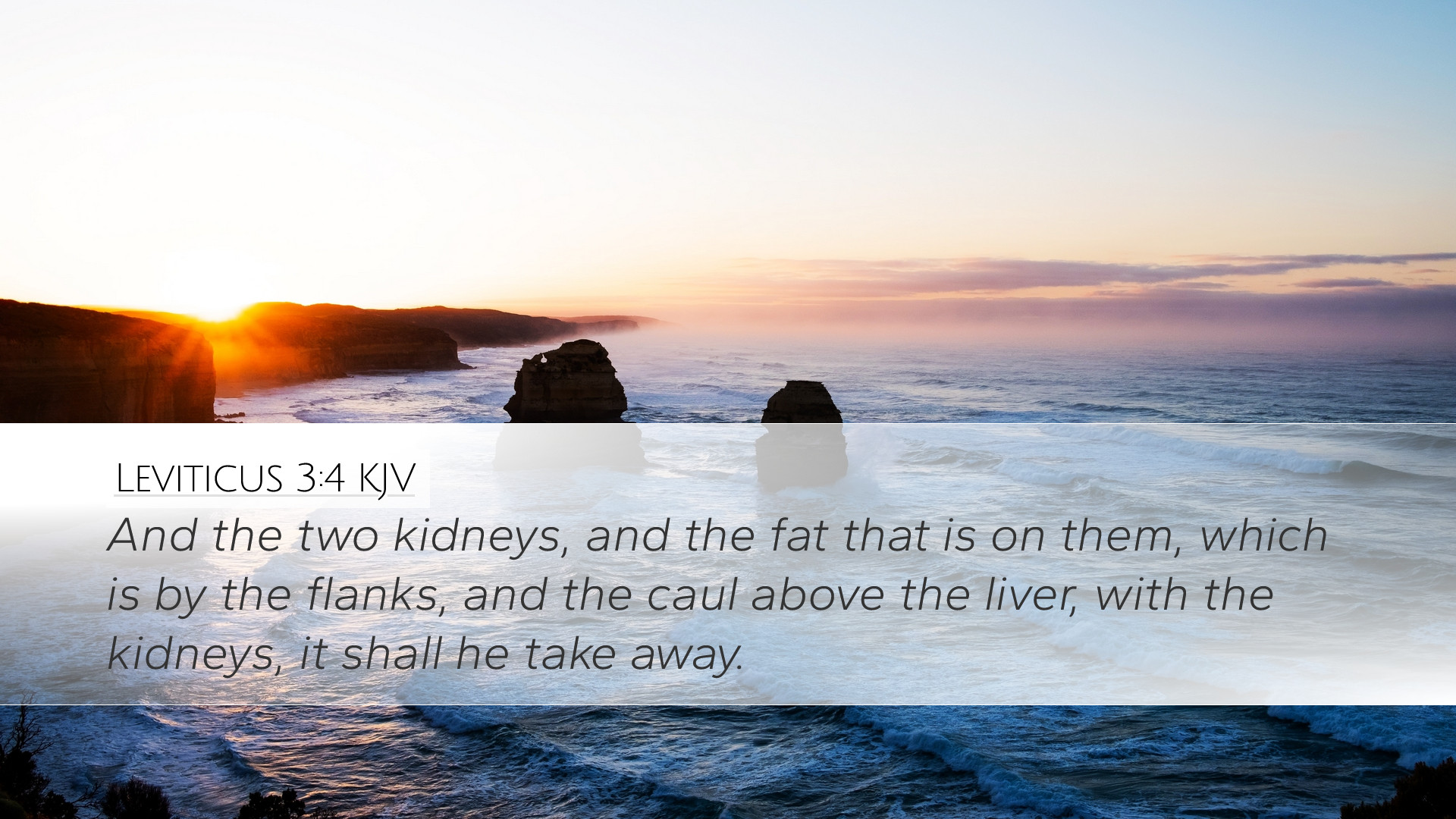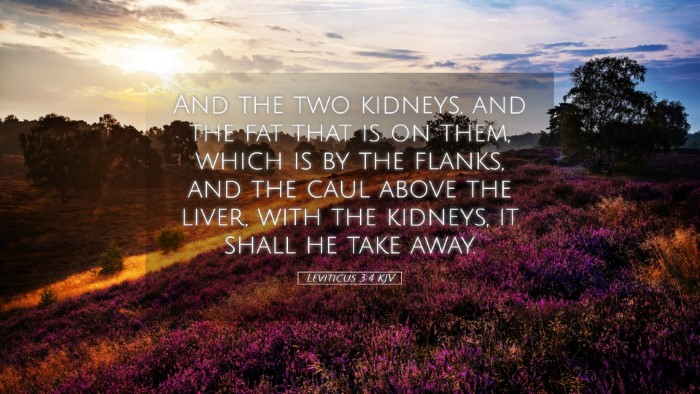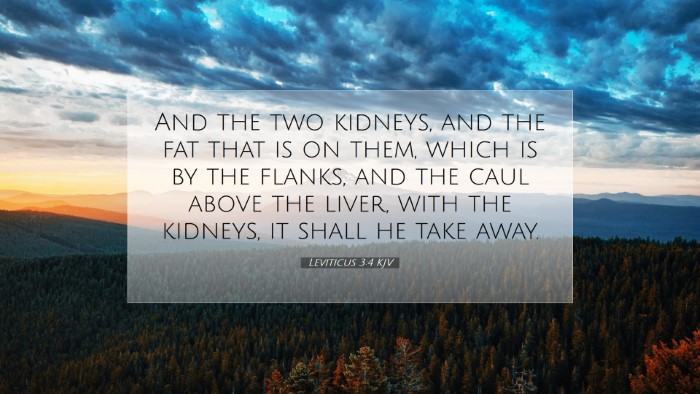Commentary on Leviticus 3:4
Leviticus 3:4: "And the two kidneys, and the fat that is upon them, which is by the flanks, and the caul that is above the liver, with the kidneys, it shall he take away."
Introduction
This verse is part of the instructions concerning the peace offerings, a significant aspect of the Hebrew sacrificial system. These offerings not only express gratitude but are also a means of communion between the offeror and God. Various commentaries reflect on the symbolic import and practical applications involving these rituals.
Insights from Matthew Henry
Matthew Henry emphasizes the meticulous nature of the sacrificial system. He notes that God, in His divine law, demands specific parts of the offerings to be presented to Him. The kidneys and fat are of particular importance, symbolizing the choicest parts:
- Significance of Fat: Henry explains that fat represents the best and richest aspect of the animal, symbolizing the fullness of devotion that should be allocated to God.
- Symbolism of Kidneys: In ancient Hebrew culture, kidneys often symbolize the seat of emotions and intentions, illustrating the inward dedication of the worshiper.
Insights from Albert Barnes
Albert Barnes contributes by providing a contextual understanding of these sacrificial practices. He highlights the role of the fat and kidneys within the broader framework of Old Testament sacrifices:
- Holiness and Separation: Barnes remarks that the fat, deemed as 'holy', is set apart for the Lord, underscoring the idea that certain aspects of life should be dedicated exclusively to God.
- Community Aspect: He also discusses how peace offerings allow for communal participation in the sacrificial meal, reinforcing fraternity and closeness among worshippers and with God.
Insights from Adam Clarke
Adam Clarke's commentary provides an in-depth examination of the terms used in this passage. He explains that:
- Detailed Ritual: Clarke notes that the specific mention of the caul above the liver indicates the precision required in the rituals, which reflects God’s desire for order and reverence in worship.
- Connection to Christ: He draws parallels between the offerings described in Leviticus and Christ's ultimate sacrifice, suggesting that the aspects of the offerings symbolize the purity and perfection of Christ.
Theological Reflections
This verse invites profound theological reflection, inviting believers to consider the nature of sacrifice:
- Understanding Sacrifice: The requirement of specific parts affirms that sacrifice is not merely about the act itself, but about what is offered - the heart and intention that lies behind the offering.
- God’s Holiness: The stipulations highlight God’s holiness; He expects the best from His people, pointing towards the intrinsic value of worship and offering in the life of a believer.
Practical Applications
Leviticus 3:4 provides several practical applications for the contemporary believer:
- Offering Our Best: Just as the fat and kidneys were chosen for the offering, believers are called to present their best selves to God—time, talents, and resources for His service.
- Emotional Investment: The kidneys, associated with our emotions, remind us that true worship involves our hearts and emotions directed towards God. Worship is not merely a routine; it is an expression of our love for Him.
- Community in Worship: Like the peace offering fostering community, the act of worship today should develop a sense of mutual support and fellowship among Christians.
Conclusion
Leviticus 3:4 not only outlines specific sacrificial practices but also illustrates profound truths about the nature of God's relationship with His people. Through the detailed instructions, we observe a framework where devotion, holiness, and community intertwine, ultimately pointing us towards our commitment to worship in spirit and truth.


